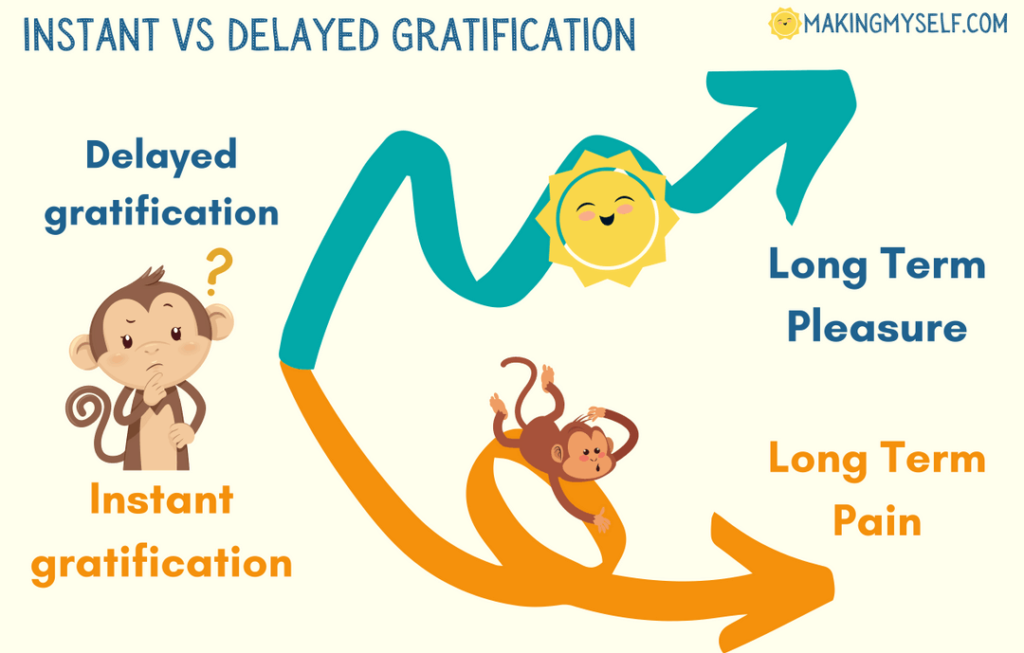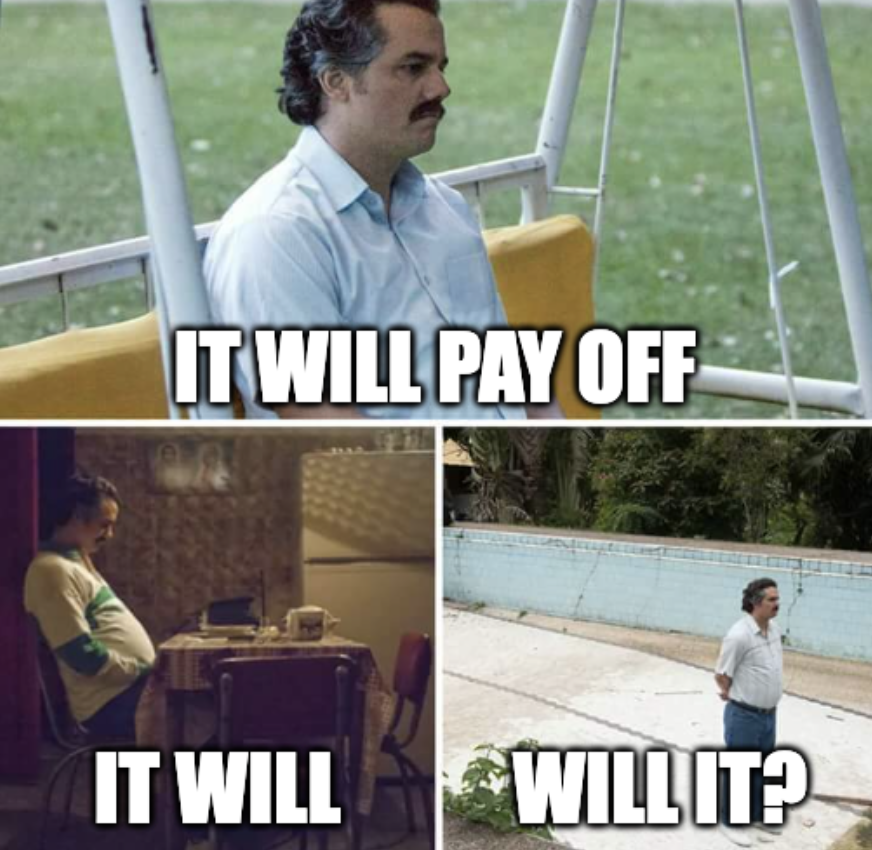- Introduction to the tendency to prioritize immediate rewards
- Explanation of the concept of delayed gratification
- Impact of prioritizing immediate rewards on long-term benefits
- The Power of Instant Gratification
- Understanding the allure of immediate rewards
- The role of dopamine in seeking instant gratification
- Examples of everyday situations where immediate rewards are prioritized
- Financial negative consequences of prioritizing immediate rewards
- How short-term thinking affects financial decisions
- The impact on health and well-being
- Developing self-control and willpower
- Setting long-term goals and creating a plan
- Conclusion
Introduction to the tendency to prioritize immediate rewards
In this article, we will explore the common tendency we all have to prioritize immediate rewards over long-term benefits. It’s something that many of us can relate to – the desire for instant gratification and the temptation to choose short-term gains over long-term goals. We often find ourselves giving in to the allure of immediate rewards, whether it’s indulging in unhealthy food, procrastinating on important tasks, or splurging on unnecessary purchases. But why do we prioritize immediate rewards when we know that it may not be in our best interest in the long run? Let’s delve deeper into this fascinating phenomenon and discover ways to overcome it.
Explanation of the concept of delayed gratification
When it comes to making decisions, we humans are more likely to choose instant gratification rather than waiting for a larger, but delayed, reward. The concept of delayed gratification refers to the ability to resist this temptation in order to obtain greater benefits in the future. It requires self-discipline and the ability to think beyond the present moment. By delaying gratification, we can achieve our long-term goals and improve our overall well-being. It is important to understand that delayed gratification is not about denying ourselves pleasure, but rather about making thoughtful choices that align with our values and priorities. By practicing delayed gratification, we can develop patience, resilience, and a stronger sense of self-control.
Impact of prioritizing immediate rewards on long-term benefits
So, when we get caught up in the excitement of instant gratification and fail to consider the long-term consequences of our actions, it can have a significant impact on our lives, both personally and professionally. For example, by prioritizing immediate rewards, we may neglect important tasks or goals that require time and effort to achieve. We may also miss out on opportunities for personal growth and development. In the long run, this can lead to a lack of progress and a sense of stagnation. It’s important for us to self-reflect and recognize the impact of our choices. By being mindful of our tendency to prioritize immediate rewards, we can make more informed decisions that align with our long-term goals and aspirations.
The Power of Instant Gratification

Understanding the allure of immediate rewards
We, as a society, are constantly bombarded with opportunities for instant gratification, whether it be through social media, fast food, or impulsive purchases. It’s easy to get caught up in the allure of immediate rewards, as they provide instant pleasure and gratification. What we overlook, is the importance of investing in our future selves. It’s essential for us to recognize this tendency and find ways to balance immediate gratification with long-term benefits. By understanding the allure of immediate rewards, we can make more informed decisions and ultimately lead more fulfilling lives.
The role of dopamine in seeking instant gratification
Dopamine is a neurotransmitter that plays a crucial role in the brain’s reward system. It is responsible for the pleasurable feelings we experience when we engage in activities that provide instant gratification, such as eating fatty/sugary food or engaging in extreme sports such as Bungee Jumping. However, this same dopamine response can also lead to impulsive behavior and a preference for short-term rewards. When dopamine is released in our brain, it motivates us to seek out more of the rewarding activity, often at the expense of long-term goals. This can manifest in various ways, such as procrastination, addiction, and difficulty in delaying gratification. By understanding the role of dopamine in seeking instant gratification, we can gain insight into our own behaviors and make more informed choices that align with our long-term goals.
Examples of everyday situations where immediate rewards are prioritized
Indulging in unhealthy snacks instead of sticking to a nutritious diet, binge-watching our favorite TV shows instead of working on important tasks, splurging on impulse purchases instead of saving for the future, those are all choices that prioritize instant gratification. These everyday situations highlight our tendency to prioritize short-term pleasure over long-term goals, and it’s something we should all take a moment to reflect on. By understanding the impact of our decisions and consciously making choices that align with our long-term aspirations, we can overcome this tendency and create a more fulfilling and rewarding future for ourselves.
Financial negative consequences of prioritizing immediate rewards
This tendency can have negative consequences for our well-being and future success also from a financial standpoint and stability. By prioritizing short-term pleasures, such as impulse buying or excessive spending, we may accumulate debt and struggle to meet our long-term financial goals. Additionally, prioritizing immediate rewards can also lead to unhealthy habits and lifestyle choices. Which are also pretty expensive. For example, indulging in unhealthy food or engaging in addictive behaviors may provide temporary satisfaction, but can have long-term negative effects on our physical and mental health. Overall, it is important to be mindful of the consequences of prioritizing immediate rewards and to find a balance between instant gratification and long-term benefits.
How short-term thinking affects financial decisions
When it comes to making financial decisions, our tendency to prioritize immediate rewards over long-term benefits can have a significant impact. We often find ourselves succumbing to the allure of instant gratification, choosing immediate pleasures over future gains. This short-term thinking can lead to impulsive spending, excessive debt, and missed opportunities for financial growth. One of the key factors contributing to this behavior is our limited cognitive abilities. Our brains are wired to seek immediate rewards, as they provide instant satisfaction and gratification. However, this shortsightedness can hinder our ability to make sound financial decisions that would benefit us in the long run. To overcome this challenge, it is important to enhance our cognitive abilities. By developing skills such as patience, self-control, and delayed gratification, we can train our brains to consider the long-term consequences of our financial choices. This shift in mindset can help us make more informed decisions, avoid impulsive spending, and prioritize long-term financial stability.
The impact on health and well-being
Needless to say that indulging in unhealthy food or avoiding exercise, over actions that would benefit our long-term health such as indeed exercising, are bad choices. Those behaviors can have significant consequences for our physical and mental well-being. By constantly seeking instant gratification, we may neglect important aspects of self-care, leading to increased stress, fatigue, and a decline in overall health. It is crucial for us to recognize the importance of balancing immediate desires with long-term benefits to maintain a healthy and fulfilling life.
Developing self-control and willpower
When it comes to achieving long-term goals, developing self-control and willpower is essential. We often find ourselves tempted by immediate rewards, such as indulging in unhealthy food or procrastinating on important tasks. However, by cultivating self-control, we can resist these temptations and stay focused on our long-term objectives. It requires practice and perseverance, but the rewards are worth it. By developing self-control, we can make better decisions, avoid impulsive actions, and ultimately lead more fulfilling lives.
Setting long-term goals and creating a plan
When it comes to achieving long-term benefits, setting goals and creating a plan is crucial. By taking the time to set long-term goals and develop a concrete plan, we can overcome this tendency and make better decisions for our future.
Of course this should not translate in setting too many or too ambitious goals; this could actually achieve the opposite effect, basically demotivating us in the long run. New Years’ Resolutions, I am talking about you 🙂
Conclusion
Importance of finding a balance between immediate rewards and long-term benefits
When it comes to decision-making, since we often find ourselves torn between immediate rewards and long-term benefits, it’s natural for us to be drawn to instant gratification, as it provides immediate satisfaction and pleasure. However, constantly prioritizing immediate rewards can have detrimental effects on our long-term well-being and success. It is important for us to find a balance between indulging in immediate rewards and considering the long-term benefits. By doing so, we can make more informed and thoughtful decisions that align with our future goals and aspirations. This requires us to resist the temptation of instant gratification and instead focus on delayed gratification, which may require patience and self-discipline. By finding this balance, we can ensure that our actions and choices contribute to our long-term happiness and success.
Encouragement to make conscious choices for a better future
It is crucial for us to take a moment and reflect on our own behaviors and decision-making processes. We, as individuals, have a tendency to be drawn towards instant gratification and the allure of immediate rewards. However, it is important to recognize the long-term consequences of our actions and make conscious choices that will lead to a better future. By considering the bigger picture and the impact our decisions have on our lives and the lives of those around us, we can break free from the cycle of short-term thinking. It is time for us to shift our mindset and embrace a more forward-thinking approach, where we prioritize long-term benefits over immediate rewards. Let us take this opportunity to self-reflect and make the necessary changes for a brighter and more fulfilling future.

